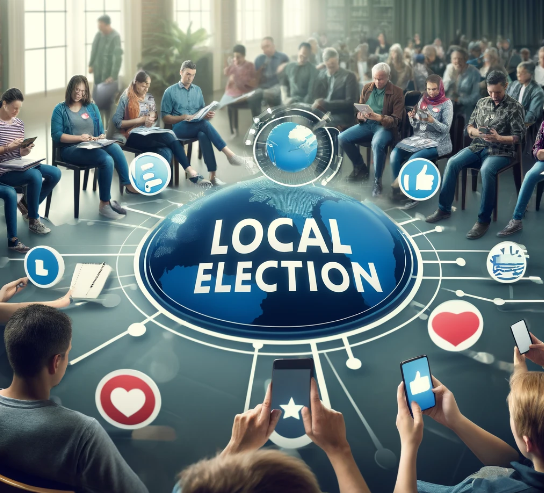Analyzing the Impact of Social Media on Local Elections and Voter Engagement
Social media has transformed numerous aspects of modern life, with political engagement and electoral processes being no exceptions. This blog dives deep into how these platforms have reshaped local elections and voter engagement, offering tools like those provided by Multipost Digital to enhance these interactions.
1. The New Public Square Social media serves as the new public square, where discussions that used to happen in town halls are now occurring online. Local elections have seen a significant shift as candidates and voters turn to these platforms for dialogue and dissemination of campaign messages.
2. Direct Voter Engagement Candidates now use social media to communicate directly with voters, bypassing traditional media and reaching a wider audience. This direct line not only personalizes the campaign but also allows for immediate feedback and interaction.
3. Enhance Your Campaign with Multipost Digital Leveraging Multipost Digital’s comprehensive tools can amplify your campaign’s reach and engage more effectively with the electorate. Our analytics help tailor your message to resonate with the local community, ensuring your social media strategy is both efficient and impactful.
4. Microtargeting Through Social Media Social media platforms provide powerful tools for microtargeting specific voter groups with tailored messages. By analyzing user data, campaigns can customize their communications based on interests, demographics, and past political engagement.
5. The Viral Effect of Social Media Viral content can make or break a campaign. A well-timed post or video can change the course of a local election by rapidly spreading a message far beyond the typical reach of traditional campaigning methods.
6. Stay Ahead with Multipost Digital With Multipost Digital, you can harness the power of viral marketing to boost your campaign. Our scheduling and crossposting features ensure that your content reaches its audience at the optimal time, maximizing engagement and impact.
7. Challenges of Misinformation While social media can enhance engagement, it also presents challenges such as the spread of misinformation. Addressing false information quickly and transparently is crucial for maintaining voter trust and the integrity of the electoral process.
8. Social Media as a Tool for Transparency Many candidates use social media to enhance transparency, offering voters real-time insights into campaign operations and policy positions. This openness can build trust and encourage higher levels of civic engagement.
9. Engaging Younger Voters Social media is particularly effective in engaging younger voters, who are less likely to engage through traditional media. Platforms like Instagram and TikTok have become essential in strategies aimed at mobilizing this critical demographic.
10. Conclusion: Empower Your Campaign with Multipost Digital As local elections continue to evolve, staying updated on the latest social media strategies is crucial. Follow Multipost Digital on our social media channels for insights and updates that can transform your campaign strategies. Together, we can engage more voters and shape the future of local governance.
This analysis underscores the significant impact of social media on local elections, highlighting both the opportunities and challenges it presents. With strategic use, these platforms can greatly enhance voter engagement and campaign effectiveness.


